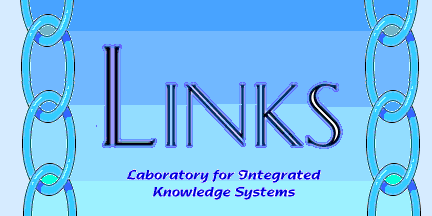
|
|
Contributions
Agent technology is a major new paradigm for constructing collaborative paradigms.
Prior to our work, all agents had been defined behaviorally. These definitions were of the form ?an
agent is any program that exhibits such and such behavior.? Our contributions include the following:
- We developed a structural definition of an agent where we specify how a legacy codebase or database can be converted into an agent.
- We developed a formal theoretical basis for such agents. Informally, agents are obtained from legacy code bases by augmenting them with various structures (the most important of which is a declarative specification of the operating principles ? the do?s and don?ts of an agent).
- We developed a software platform called IMPACT that provides a tool to agentize legacy data sources and code bases. Once an agent is built and debugged by an agent developer using IMPACT, the agent may be deployed. Deployment converts the declaratively specified agent into mobile Java code.
- We have developed various extensions of the basic agent paradigm:
- Extensions whereby agents can reason about other agents (meta-agents)
- Extensions where agents can reason about time and about actions with duration (temporal agents)
- Extensions where agents can reason about uncertainty (probabilistic agents)
- Extensions where agents can enforce security requirements (secure agents)
- We have developed a slew of techniques to scale agents
- We have developed methods whereby agents can merge multiple tasks, leveraging commonalities amongst tasks
- We have developed methods to partition a large set of tasks into buckets. Each bucket contains similar tasks ? the contents of a bucket can be merged effectively.
- We have developed methods to allocate tasks to other agents so as to optimize performance.
- We have been developing a multiagent creation environment (MACE) using which, an agent developer can automatically reason about a system of agents. This is useful if, for example, the agent developer wants guarantees that a multiagent system will always satisfy various properties.
- We have been developing methods to ensure the survivability of a multiagent system.
Goals | Contributions | People
Past Work | Sponsors | Publications | Presentations
Back to Projects
|

